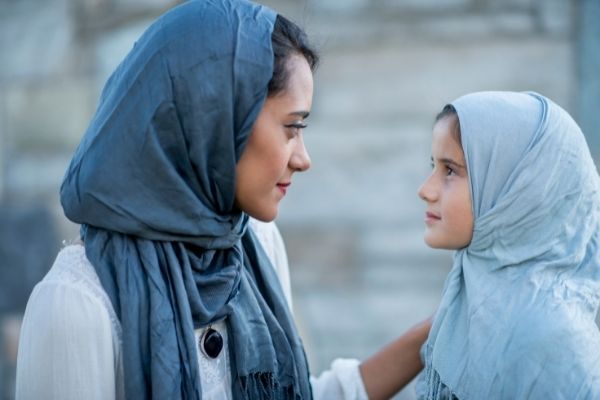Deadline: 01-Apr-24
The Danish Refugee Council’s Diaspora Project Support (DiPS) grants funding and provides technical support to Afghan and Somali diaspora in Denmark to implement rehabilitation and/or development projects in their countries of origin or heritage.
The Danish Refugee Council’s Diaspora Programme (DP) facilitates, supports and enhances the role of diaspora as agents of humanitarian assistance and development in their country of origin.
Types of Grant
- There are two funding tracks you can apply for:
- Track 1, which can be for a maximum of 150,000 DKK
- Track 2, which can be for a maximum of 300,000 DKK
Duration
- The project should have an implementation period of a maximum of 12 months.
What DiPS funds?
- The funding applied for must be relevant forthe implementation of the project. The type of costs DiPS can fund include:
- Staff costs for local staff employed to implement the project
- Travel costs in relation to project implementation, including insurance
- Per diem for qualified persons travelling from Denmark (approximately 539 DKK per day, including food and accommodation) for a maximum of 12 days.
- Per diem for local staff not located in the project/target area approximately 120 DKK per day, including food and accommodation)
Project Objective and Activities
- Project activities that contribute to rehabilitation and/or development for people affected by conflict and displacement in Afghanistan and Somalia or neighboring countries hosting significant Afghan or Somali communities may be supported by DiPS.
Target Groups
- Projects must target people affected by conflict and displacement in Afghanistan, Somalia or neighboring countries. Projects should target entire communities or larger sub-groups of communities. Projects targeting individuals, exclusive groups or individual families cannot be supported.
Target Areas and Project Location
- Project activities can only be supported if they target people affected by conflict and displacement in Somalia (Somaliland, Puntland and South-Central Somalia), Afghanistan, and neighboring countries where a large number of refugees reside (e.g. Pakistan, Ethiopia and Kenya (but not Iran due to external restriction). Project activities en route or in Denmark can be supported if activities target people affected by conflict and displacement in the abovementioned countries.
Eligibility Criteria
- The diaspora applicant
- Only Somali and Afghan diaspora organizations in Denmark are eligible to apply for funding through the DiPS fund. The criteria for diaspora applicants includes:
- For Track 1
- Organizations from the Afghan or Somalia diaspora can apply for funding. It is not a requirement to have any previous experience with implementing projects.
- It is not a requirement to have any previous experience with implementing projects.
- For Track 2
- Your diaspora organization must have previous experience implementing projects and managing grants of 100,000 DKK or more. Proof of previous experience must be submitted together with the application. If you submit an application in collaboration with other diaspora organizations or representatives from other diaspora organization, only one of the diaspora organizations must have previous experience from implementing a grant of over 100,000 DKK.
- For all applicants (Track 1 and track 2)
- It is allowed to submit applications that are a collaboration with other diaspora organizations or representatives from other diaspora organizations.
- If your project idea is selected for the development phase, it will be mandatory to have two diaspora representatives that are actively involved in project implementation and development.
- You may not have any ongoing projects funded by DiPS at the time the application is submitted.
- If a contact person included in your application or your diaspora organization have previously failed a project finalization assessment for a project implemented with DiPS, you are not eligible to apply again (implemented from 2023 onwards).
- At least two of the main contact persons for the project must be diaspora.
- You must be an established Somali or Afghan diaspora organization. This means that your organization must:
- Have a board with at least three members (chairman, vice chairman and treasurer);
- Be bound by valid articles of association (statutes or “vedtægter” in Danish), in which it must be clearly stated who is authorized to sign on behalf of the organization (signatories);
- Be diaspora-led, meaning that the majority of board members self-identify as diaspora.
- Be a non-profit organization.
- For Track 1
- Only Somali and Afghan diaspora organizations in Denmark are eligible to apply for funding through the DiPS fund. The criteria for diaspora applicants includes:
- Local partner
- It is not mandatory to have a local partner to apply for or implement a DiPS-funded project. However, it will be a requirement that all projectsfunded by DiPS can be effectively implemented with strong participation from the local community. In most casesit is expected that a local partner will be necessary to achieve this. Examples of a local partner could include local entities such as a non-governmental organization (NGO), formal representative body of the community of concern (e.g. a Community Development Council), a local branch of the diaspora organization, or a local volunteer network.
- Any local partner will need to meet the below criteria:
- Will not make profit through participating in the project;
- Is willing to undergo DRC`s due-diligence assessment and vetting procedure to ensure that the entity or individuals representing the entity have not been involved in criminal or unethical activities such as corruption or terrorism.
Ineligible
- Funding cannot be provided for:
- Emergency humanitarian response projects Projects that carry a political or religious message
- Projects deemed to discriminate against individuals or groups of people in the target communities will not be considered.
- Projects that are expected to generate profit for or lead to financial benefit for actors involved in the management or implementation of the project.
For more information, visit Danish Refugee Council.
